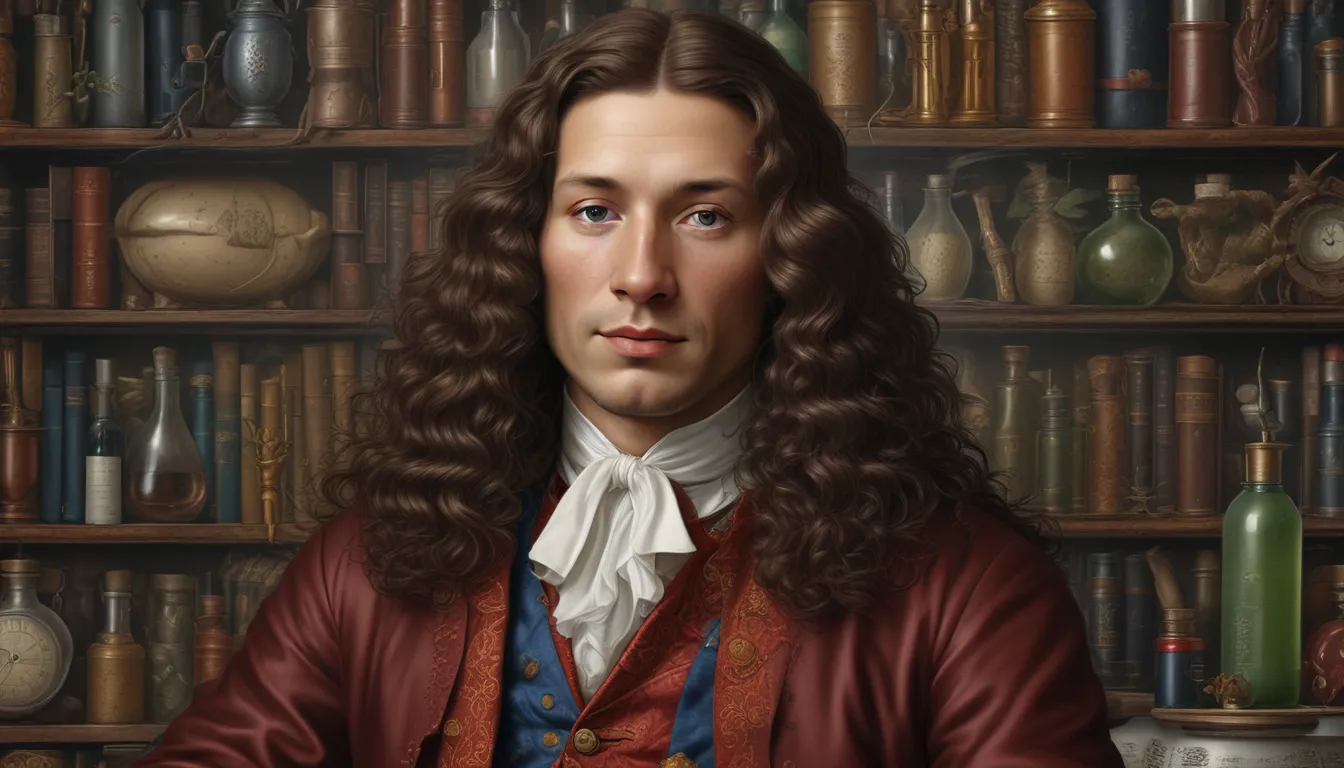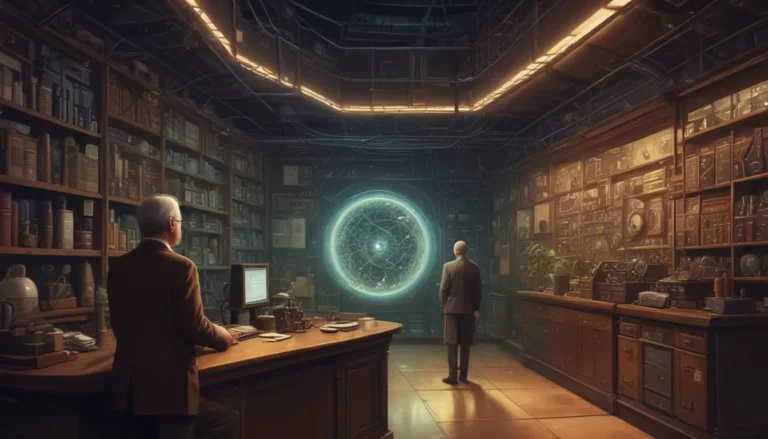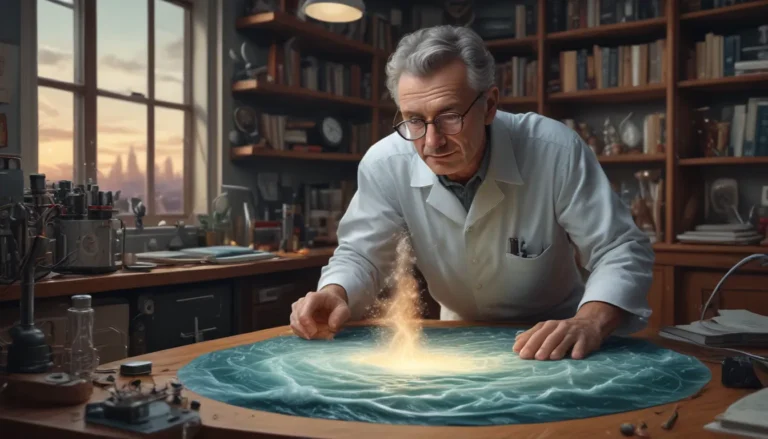The images in our articles may not match the content exactly. They are used to grab your attention, not to show the exact details in the text. The images complement the text but do not replace it.
Dr. Antonie van Leeuwenhoek, known as the “Father of Microbiology,” was a Dutch scientist born in Delft, Netherlands in 1632. His insatiable curiosity and dedication propelled him to construct powerful microscopes, enabling him to observe and document previously unseen organisms. Through his groundbreaking discoveries, van Leeuwenhoek revolutionized our understanding of the microscopic world, leaving an indelible mark on the scientific community.
Dr. Antonie Van Leeuwenhoek: The Ingenious Microscopic Lens Maker
One of Dr. Antonie van Leeuwenhoek’s most remarkable talents was his ability to craft microscopes with exceptional magnification power. His lenses, finely crafted to magnify up to 270 times, allowed him to observe minute details in microorganisms that were previously invisible to the naked eye. By pioneering the development of such sophisticated lenses, van Leeuwenhoek laid the foundation for modern microscopy and scientific exploration.
The Enigmatic Discoveries of Dr. Antonie Van Leeuwenhoek
Discovery of Bacteria and Protists
Van Leeuwenhoek’s meticulous observations led to groundbreaking discoveries, including the first observation and description of bacteria, which he called “animalcules.” His microscope also unveiled the existence of complex single-celled organisms known as protists, expanding our understanding of the microbial world. These discoveries paved the way for further exploration in microbiology and set the stage for advancements in the field.
Revelations in Spermatozoa and Blood Cells
Through his detailed examinations, van Leeuwenhoek became the first scientist to discover and describe spermatozoa, deepening our understanding of human reproduction. Additionally, his observations of red blood cells provided valuable insights into the circulatory system, showcasing his multifaceted contributions to the scientific community.
Observations of Muscle Fibers and Tooth Plaque
Venturing into new realms of scientific inquiry, van Leeuwenhoek studied muscle fibers, documenting their structure and contraction patterns. He also turned his attention to dental hygiene, becoming the first to describe the formation of tooth plaque. These diverse observations highlighted his curiosity and dedication to exploring various aspects of the natural world.
Pioneering Study of Infusoria and Microbial Diversity
Van Leeuwenhoek’s fascination with microscopic organisms extended to the study of Infusoria, a diverse group found in freshwater environments. His meticulous observations and recordings of their structures and behaviors expanded our knowledge of these organisms, showcasing his comprehensive approach to scientific exploration. Moreover, through his work, van Leeuwenhoek provided invaluable insights into the diversity of microorganisms, laying the groundwork for future discoveries in microbial diversity.
The Lasting Impact of Dr. Antonie Van Leeuwenhoek
Dr. Antonie van Leeuwenhoek’s pioneering spirit, meticulous nature, and scientific contributions have left an enduring legacy in the field of microbiology. His relentless curiosity and unparalleled lens-making skills revolutionized our understanding of the microscopic realm, inspiring generations of scientists to explore the hidden mysteries of the unseen world. Through his groundbreaking discoveries and advancements, van Leeuwenhoek shaped the course of scientific history and continues to influence scientific exploration to this day.
FAQs: Unveiling the Legacy of Dr. Antonie Van Leeuwenhoek
Q: Who was Dr. Antonie van Leeuwenhoek?
A: Dr. Antonie van Leeuwenhoek was a Dutch scientist known as the “Father of Microbiology.” He made significant contributions to the field of microbiology through his groundbreaking discoveries using microscopes.
Q: What were some of Dr. Leeuwenhoek’s major discoveries?
A: Dr. Leeuwenhoek’s major discoveries include the observation of bacteria, protists, spermatozoa, red blood cells, muscle fibers, tooth plaque, and Infusoria. His meticulous observations revolutionized our understanding of the microscopic world.
Q: How did Dr. Leeuwenhoek contribute to the field of science?
A: Dr. Leeuwenhoek’s contributions to science were significant, as he pioneered the development of microscopy and made groundbreaking discoveries in microbiology. His meticulous observations and accurate descriptions laid the foundation for modern microbiology.
Q: What was Dr. Leeuwenhoek’s lasting legacy in microbiology?
A: Dr. Leeuwenhoek is considered a pioneer in microbiology due to his groundbreaking discoveries and advancements in the field. His meticulous nature, scientific contributions, and unparalleled lens-making skills continue to inspire and shape the scientific community.
Q: How did Dr. Leeuwenhoek’s discoveries impact future scientific developments?
A: Dr. Leeuwenhoek’s discoveries laid the foundation for further advancements in microbiology and related fields. His work inspired the development of more sophisticated microscopes, led to the study of infectious diseases, and contributed to the understanding of cellular biology.
In conclusion, Dr. Antonie van Leeuwenhoek’s remarkable contributions to microbiology have established him as a pivotal figure in the history of science. His innovative approach to scientific inquiry, combined with his dedication to exploring the microscopic world, has influenced generations of scientists and continues to shape our understanding of the natural world. By unraveling the enigmatic mysteries of the unseen realm, van Leeuwenhoek’s legacy endures as a testament to the power of curiosity, observation, and scientific investigation in advancing human knowledge.






